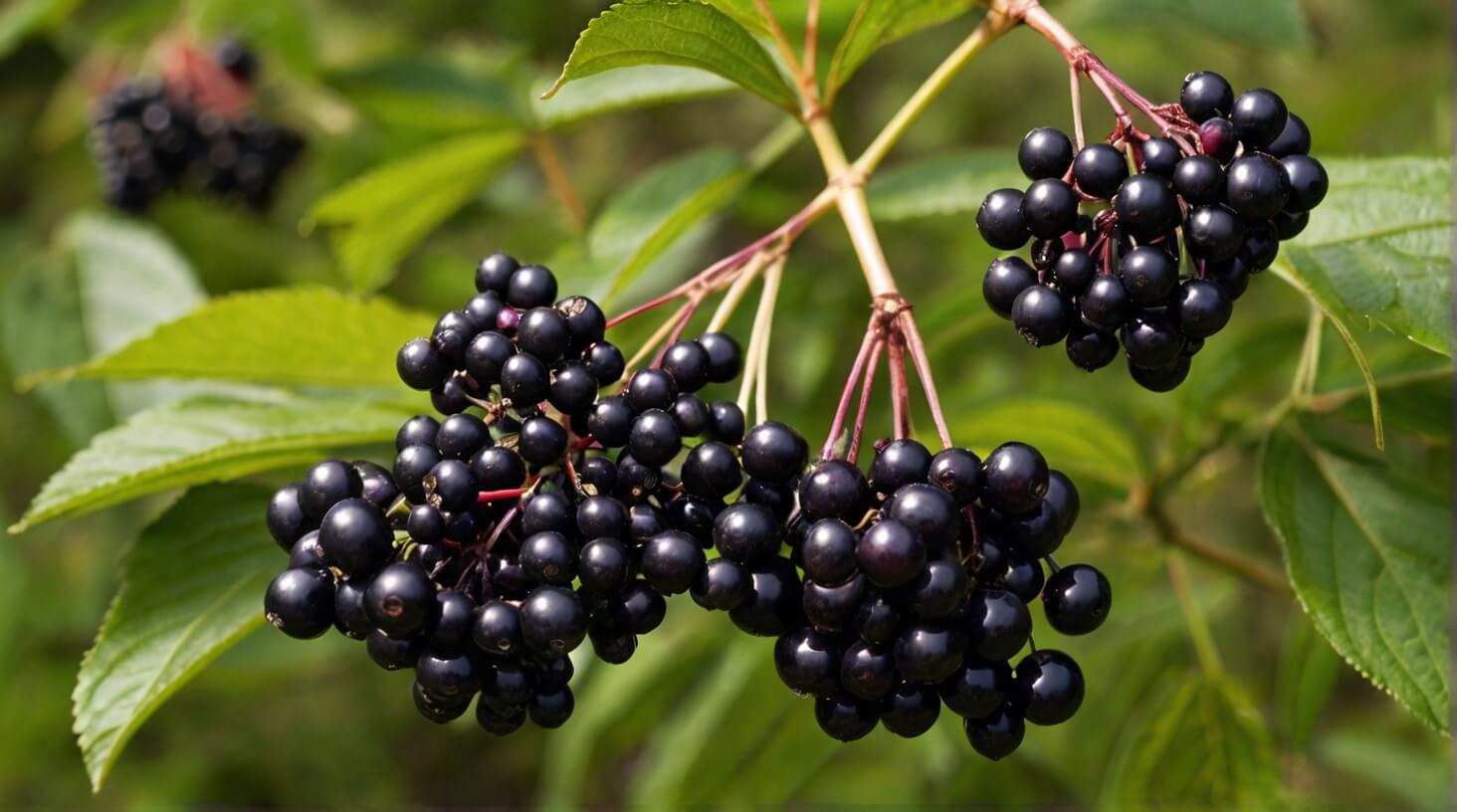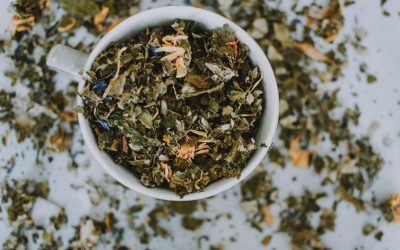An ounce of prevention is worth a pound of cure, and you’ve likely heard that bolstering your immune system is key to maintaining your health. As someone keen on taking charge of your well-being, you might find yourself eyeing the colorful array of herbal supplements at your local health store, each promising a boost to your body’s natural defenses. It’s true that many herbs carry a powerful punch of bioactive compounds and antioxidants, potentially offering you an edge against the daily onslaught of pathogens. You’ve seen basil, spearmint, cloves, ginger, and turmeric not just as culinary delights but as subjects of scientific inquiry, each with their own set of promising therapeutic effects. But before you make them a staple in your pantry for their immune-supporting properties, consider the nuanced landscape of herbal efficacy and safety. As you weigh the potential benefits against the need for caution and guidance from health professionals, you’re left wondering: just how impactful can these natural substances be on your immune system, and what does the latest research say about their true capabilities?
Key Takeaways
- The immune system is a complex network that defends the body against pathogens.
- A balanced and varied diet, along with essential nutrients, is crucial for optimal immune health.
- Certain herbs and spices, such as basil, spearmint, cloves, ginger, and turmeric, have bioactive compounds that offer immune health benefits.
- Herbal supplements, like echinacea and elderberry, may help stimulate the immune system and reduce the severity of symptoms associated with the common cold and upper respiratory issues.
Immune System Fundamentals

Your immune system is a complex network of cells, tissues, and organs that collaborate to defend your body against pathogens and maintain overall health. Immune system fundamentals dictate that a balanced and varied diet is pivotal in upholding the strength and efficacy of your immune response. The immune cells, which include white blood cells like natural killer (NK) cells, play a vital role in identifying and neutralizing harmful invaders.
Ingesting a diet deficient in essential nutrients can compromise your immune health, making you more susceptible to infections. Therefore, to stimulate the immune system, it’s imperative that you focus on healthful eating, which not only provides the energy your body needs but also the immune-enhancing effects of various micronutrients.
Moreover, certain herbs and spices can help improve immune function. Basil, spearmint, cloves, ginger, and turmeric, with their bioactive compounds, offer immune health benefits that go beyond basic nutrition. These include antioxidant properties that reduce oxidative stress, anti-inflammatory effects that can modulate immune responses, and therapeutic qualities that support overall well-being.
While herbs and spices can improve immune health, it’s important to approach herbal supplements with caution. Indiscriminate use can lead to adverse effects, especially in individuals with autoimmune skin diseases. Therefore, the goal is not only to nourish but also to protect and support the immune systems in a responsible manner. By understanding the immune response and incorporating nutrient-rich foods and beneficial herbs, you can enhance your immune health in a way that serves both your well-being and the community’s health.
Herbal Supplements Overview
Building on the role of diet in supporting the immune system, it’s critical to evaluate the potential of herbal supplements as natural adjuncts to healthful eating. Herbal supplements encompass a broad spectrum of natural products derived from plants, known historically and in various cultures for their health benefits. These products frequently appear as capsules, teas, or powders, and the herbs used often include echinacea, garlic, ginkgo biloba, and ginseng, among others.
You should be aware that while including herbs and spices in a balanced diet can support health and immunity due to their bioactive compounds and antioxidants, the use of herbal supplements carries its own set of considerations. Herbal supplements include substances that can interact with prescription medications, and as such, it’s paramount to discuss their use with a healthcare professional, particularly if you have specific health conditions.
The potential benefits of herbal supplements are often highlighted in popular media; however, you must recognize that clinical studies substantiating their efficacy are varied and, in many cases, limited. The Food and Drug Administration (FDA) does not strictly regulate herbal supplements in the same way as pharmaceuticals, so the quality and potency can differ significantly between products.
In serving others, it’s essential to provide guidance that is both credible and scientifically sound. Encourage those interested in herbal supplements to seek reliable sources of information and to understand that while some supplements may offer health benefits, they should not replace conventional medicine but rather complement a well-rounded approach to health and wellness, always under the supervision of a healthcare professional.
Echinacea and Immunity

Amidst the rising popularity of herbal supplements, echinacea stands out for its potential to stimulate the immune system and may offer support for improved immune function. You’re likely seeking ways to protect and enhance the health of those in your care, and understanding the role of echinacea in immunity is crucial.
Echinacea has been extensively studied, with some research suggesting that it can prevent and treat the common cold. It’s believed to help reduce the duration and severity of symptoms, potentially offering a natural aid to combat respiratory infections. Although studies show efficacy, it’s important to note that echinacea can interact with certain medications, so advising a healthcare professional before use is essential.
- Empowerment: Equip yourself with knowledge to make informed decisions about herbs and supplements.
- Compassion: Utilizing echinacea could demonstrate a proactive approach to caring for others’ well-being.
- Resilience: Echinacea’s potential health benefits may contribute to a stronger immune response against common illnesses.
- Mindfulness: Be aware of the delicate balance between natural remedies and conventional medicine.
- Diligence: Keep abreast of the latest scientific findings to best serve those relying on your guidance.
As you integrate echinacea and immunity into your practice, remember that herbal supplements are just one piece of a holistic health puzzle. While herbs and supplements like echinacea are popular, they should complement a lifestyle that includes a balanced diet, regular exercise, and adequate sleep. Always approach the use of any supplement with caution and respect for its potential power and limitations.
Elderberry Benefits

Elderberry supplements, rich in antioxidants and bioactive compounds, may bolster your immune system when integrated into your daily health regimen. These herbal supplements have been widely used for centuries and are now gaining recognition amongst healthcare professionals for their potential health benefits.
As someone keen on serving others and enhancing well-being, you’ll find elderberry’s capacity to help reduce the severity of upper respiratory symptoms particularly valuable. Studies have indicated that these berries can be used to treat symptoms associated with the common cold and other viral infections.
By shortening the duration of illness, elderberry supplements not only assist in quick recovery but also contribute to maintaining a robust immune defense. It’s important, however, to consult with healthcare professionals before starting any new supplement, especially if you or those you care for have underlying health conditions or are on other medications.
Here is a table that encapsulates the benefits of elderberry:
| Benefit | Description |
|---|---|
| Antioxidant Properties | Help protect cells from oxidative stress and inflammation. |
| Immune System Support | May boost the body’s natural defense against pathogens. |
| Reduction in Illness Duration | Suggested to shorten the duration of cold and flu symptoms. |
Botanicals and Inflammation
Incorporating herbs from the lamiaceae family, such as basil and spearmint, into your diet can significantly reduce inflammation and support immune function. These botanicals, common in various cultural cuisines, are not only flavorful but also offer substantial health benefits. Studies have demonstrated that these herbs contain potent anti-inflammatory compounds, which can help in both preventing and treating inflammatory conditions. As someone passionate about serving others, understanding the potential health benefits of these herbs can be invaluable in healthcare guidance.
When advising on supplements and dietary choices, consider these key points:
- Antioxidant Powerhouse: Herbs are rich in antioxidants, which neutralize harmful free radicals, reducing oxidative stress and inflammation.
- Nutrient-Dense: They provide essential nutrients that bolster the body’s natural immune response.
- Supports Healing: Anti-inflammatory properties of herbs can accelerate recovery and promote health.
- Easily Integrable: Herbs can be seamlessly added to a variety of dishes, enhancing both flavor and therapeutic value.
- Culturally Inclusive: Embracing herbs in healthcare practices shows respect for and integration of traditional wisdom.
Herbs such as turmeric, with its active component curcumin, and ginger are widely recognized for their anti-inflammatory effects. Cloves, another spice high in antioxidants, can also be added to the list of beneficial botanicals. Healthcare professionals often recommend incorporating these into regular diets as they have been traditionally used to combat inflammation and support overall well-being.
Herbal Safety and Regulations
While herbal supplements can offer numerous health benefits, it’s crucial to approach their use with an understanding of proper safety measures and regulatory standards. You’re likely aware that these natural remedies can support immune response and aid in the prevention and treatment of various health conditions. However, as someone dedicated to serving others, you must also be informed about the risks associated with their use.
Herbal supplements are not strictly regulated by the Drug Administration (FDA) like prescription medications. This means that safety and efficacy may not be guaranteed. It’s vital to select products from reputable sources that adhere to quality standards set by regulatory agencies. Studies have shown that some herbal products may contain contaminants or not contain the listed ingredients in the correct amounts.
When considering herbal supplements for yourself or others, especially for individuals with health conditions, it’s essential to consult with a healthcare provider. This is to ensure that there are no potential interactions with prescription medications and to discuss the appropriate dosage and regimen.
Here’s a brief overview of key points to remember:
| Consideration | Detail |
|---|---|
| Children and Vulnerable Groups | Consult healthcare professionals before use. |
| Interactions with Medications | Discuss potential interactions with a healthcare provider. |
| Purchasing | Buy from reputable sources to ensure quality. |
In your role, always prioritize the well-being of those you serve by staying informed and exercising caution with complementary and alternative therapies. By doing so, you help safeguard their health while harnessing the potential benefits of herbal supplements.
Integrating Herbal Strategies
Having established the importance of safety and professional consultation when using herbal supplements, let’s now explore how to effectively integrate these natural remedies into your diet to bolster the immune system. Herbal strategies are becoming increasingly popular as you seek to enhance your overall health. Supplements have the potential to play an important role in this endeavor, provided they are used judiciously.
Commonly used herbs like basil and ginger have been used in traditional medicine for centuries and are known for their ability to help alleviate symptoms of various ailments. When integrating herbs into your diet, consider the following:
- Basil: Revered for its anti-inflammatory properties, basil can help in soothing the body’s immune response.
- Spearmint: With its refreshing flavor, spearmint also has antioxidant effects that support immune health.
- Cloves: These potent buds are rich in antioxidants and can reduce oxidative stress, a key factor in immune defense.
- Ginger: Ginger is a versatile root that can help alleviate digestive issues and bolster immune function.
- Turmeric: Containing the active compound curcumin, turmeric has strong anti-inflammatory properties and may help in maintaining immune homeostasis.
It’s imperative to understand that certain herbs may contain compounds that can interact with medications or exacerbate health conditions. For example, echinacea, while supportive of the immune system, may not be suitable for individuals with autoimmune skin diseases. Similarly, the amino acid content in some herbs might require monitoring in specific health scenarios.
Always seek advice from healthcare professionals who can guide you on the appropriate use of these supplements to ensure they complement, rather than compromise, your health regimen. Remember, the goal is to alleviate symptoms and enhance your immune system without causing harm.
Research and Efficacy
You should critically evaluate the scientific research on herbal supplements, as their efficacy in enhancing immune response often relies on evidence from studies with varying degrees of rigor. Studies show that certain supplements, such as zinc, elderberry, and vitamins C and D, may bolster the immune system. However, it’s important to remember that these supplements should complement, not replace, a healthy lifestyle.
Research on the consumption of herbs and spices in animal and human trials is necessary to substantiate previous research that suggests potential benefits for immune health. While herbal supplements have been recognized for their antioxidant properties and their ability to reduce inflammation, these findings do not always translate into a decreased risk of infection or improved clinical outcomes in healthy adults or those with severe acute illnesses.
Studies indicate that some herbal supplements have the potential to interact with prescription medications. Therefore, it’s crucial to consult healthcare providers before adding new supplements to your regimen, especially if you are managing acute respiratory conditions or other severe acute illnesses.
The inflammatory response is a complex process, and while some herbal supplements may modulate this response, scientific evidence is still evolving. It is essential for you to approach herbal supplements with cautious optimism and to consider the strength of the evidence supporting their use.
As someone dedicated to serving others, you must prioritize safety and efficacy based on rigorous scientific inquiry. This means advocating for more high-quality research to bring clarity to the role herbal supplements play in supporting the immune system.











